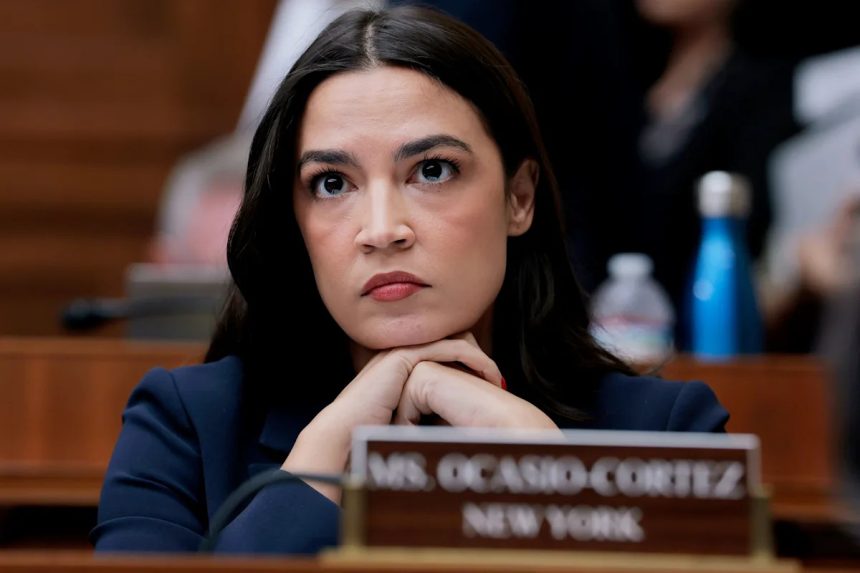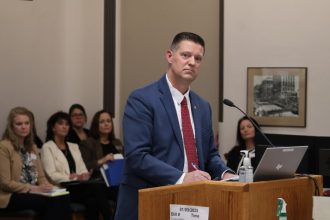The News
As Congress reexamines member security after Charlie Kirk’s assassination, both parties agree on two things: The private sector is far better at comprehensive protection — and money alone isn’t enough to catch up.
The December shooting of UnitedHealthcare CEO Brian Thompson forced corporations to reevaluate how they safeguard against threats to executives. Politicians got similar wakeup calls prior to Kirk’s killing, including the shooting of two Minnesota state legislators this summer.
Even so, much of Washington’s security debate is focused on how much to spend rather than whether to change tactics. And several lawmakers in both parties told Semafor they think Congress is unprepared to protect them against rising threats of political violence, even after House Republicans floated going even further than the $30 million in state and local law enforcement partnerships that they approved last week.
These lawmakers said that while money helps, it won’t work without changing how they spend it. That includes giving members more flexibility in how they spend the funds, as well as monitoring the digital threats that corporations and other large organizations track more routinely than Congress does.
“It’s not about having money or not having money, it’s about the way that we structure some of these things,” Rep. Alexandria Ocasio-Cortez, D-N.Y., told Semafor. “If you’re going to put in resources, I think having resources that go into direct protection is fine — but there is also a digital threat environment around misinformation. And there’s not the capacity to assess that threat environment.”
Viral conspiracy theories and other baseless claims increasingly circulating online have caused blowback for members of both parties. Rep. Pete Sessions, R-Texas, said he’s not confident in current monitoring of digital threats and wants an analysis of member security.
Sessions said in an interview that he’s not “confident” his staff is able to keep up with online threats: “It’s insane.”
Know More
The Capitol Police monitors digital threats against lawmakers, including via its recently launched Protective Intelligence Operations Center. But some members, including Rep. Jared Moskowitz, D-Fla., told Semafor they’re not sure how effective those efforts are.
“There’s very little follow up” after lawmakers report digital threats, Rep. Tim Burchett, R-Tenn., said. “They don’t seem to take threats serious for certain members.”
A spokesperson for the Capitol Police said the embattled department continues “to work to enhance and expand our protective capabilities to meet our critical mission.”
Security consultant Brittney Blair told Semafor that local law enforcement and private security guards — like those funded by Congress — typically lack the resources to conduct the kind of online monitoring that she’s seen firms implement after the UnitedHealthcare shooting.
“I absolutely want to believe the police will keep you safe. And there’s no world where I think that we should give fewer resources to law enforcement,” added Blair, a former director of intelligence operations for the Cook County Sheriff’s office in Chicago who now works at K2 Integrity. “But that is not the end-all-be-all answer; it hasn’t been for a long time.”
A recent study of S&P 500 companies found that the number of CEOs who receive security rose 48% between 2020 and 2024 as “boards are reassessing their security protocols amid emerging threats across various areas, including digital platforms and social media.
Blair said that her firm is monitoring digital threats for twice as many clients this year.
House Oversight Chair James Comer, R-Ky., has taken recent action on online threats since Kirk’s killing, inviting the CEOs of Discord, Steam, Twitch and Reddit to testify next month “to explain what actions they will take to ensure their platforms are not exploited.”
One committee member, Rep. Stephen Lynch, D-Mass., said he’d like to see members pursue a “public-private partnership” with analysts like Blair that could help Congress adapt its security at a similar pace to the private sector: “They’re obviously faster than us,” he said.
Another potential solution: give members more leeway to spend how they see fit. Rep. Byron Donalds, R-Fla., told Semafor that was his top priority as he left a recent meeting with House Speaker Mike Johnson and other lawmakers concerned about security.
“I think we get overly prescriptive,” Rep. Chip Roy, R-Texas, told Semafor. “I am on 10 acres in Texas; that’s different than a colleague in Brooklyn or Chicago.”
“There’s a lot of things we ought to consider — but as usual, it’s, ‘throw money at a problem,’ and I just disagree with that,” Roy added.
Burchett said he also saw opportunities to bolster physical security, including improving coordination with local law enforcement and reviewing where Capitol Police officers are stationed. Rep. Greg Murphy, R-N.C., suggested members could be trained on situational awareness.
Still, some lawmakers are acknowledging it’s not possible to keep themselves 100% safe, since — unlike executives — they contend with near-constant political rhetoric.
“Unfortunately, we’re in very public roles; nothing that we do is going to make security perfect, particularly in the district,” said Rep. Jay Obernolte, R-Calif., adding that he was in a parade in Napa Valley last weekend where he, like Kirk, could have been targeted by a shooter on a roof.
“That is in the public nature of our role; that’s just a risk that we take.”
Several lawmakers have called for a wholesale re-envisioning of how the two parties address each other, prioritizing kindness over point-scoring. But that’s an unenforceable goal.
“There’s no amount of money that can keep Congress safe; there was no amount of money that could have kept Charlie Kirk safe,” said Rep. Jim Himes, D-Conn.
Asked how legislators can better police each other’s rhetoric, he replied: “American voters need to stop sending assholes to Congress.”
Room for Disagreement
House Administration Chair Bryan Steil, R-Wis., whose committee has jurisdiction over the issue, pushed back on the idea that congressional security has not kept pace with current threats.
“I think we’re constantly reevaluating. I don’t think that’s ever stopped,” Steil said. “We’re constantly reviewing and analyzing security protocols that are in place.”
Notable
-
Some lawmakers made changes within their control after Kirk’s death, Semafor reported.
-
The House Administration Committee expanded and extended a pilot program that gives members a monthly allowance to hire personal security, among other things.
-
Per Bloomberg Government, Johnson teased a possible vote on standalone member security legislation when members return next month.









